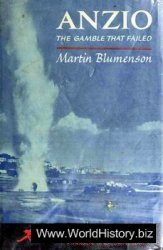King of Castile and Leon (1252-1282).
The son of King Ferdinand III, Alfonso X was a pioneer in his attempts to strengthen the Castilian-Leonese monarchy by basing his kingship on the concept of royal sovereignty. He subordinated his two important, complementary political concerns to this objective. One of these was to obtain the imperial title; the other was to impose his authority throughout the whole of his united realm.
As the son of Beatrix, daughter of Philip of Swabia, Alfonso aspired to become Holy Roman Emperor. Elected as king of Germany in opposition to the English candidate Richard of Cornwall in 1257, Alfonso opposed the Franco-papal Guelph cause led by Charles I of Anjou. The king wanted to make use of the authority inherent in the imperial title in order to affirm the hegemony of Castile over all the Christian kingdoms in the Iberian Peninsula. This involved the exercise of a strong, centralized power, and he dedicated his principal governing initiatives to the consolidation of this power. His initiatives related to four main areas of activity: legislative work, territorial uniformity, definition of stable frontiers, and cultural control.
The king’s legislative work consisted in the codification of a corpus of common law, called Especulo, which was later integrated into another more copious work, the Partidas. The Roman, homologizing principles that dominated this endeavor materialized in the promulgation of a Fuero Real (royal privilege) granted to many cities in the kingdom. The king’s fundamental preoccupation was the legal unification of his territory; this centralizing tendency affected the autonomous status of some of the subjugated Islamic communities, which responded by rebelling. Thus in 1264 a significant uprising occurred in the Muslim communities of Andalusia and Murcia with the connivance of the king of Granada.
Another of the great challenges of King Alfonso was to create stable, defined frontiers. For this reason, he maintained complex relations with the neighboring Christian kingdoms and established customs duties that helped to define the political map of the kingdom. But, above all, the frontier policies were part of the reconquest, which severely reduced the Islamic presence in the Peninsula, limiting it to the Nasrid kingdom of Granada. The aim of the monarch was to take the crusade to North Africa so as to control the Strait of Gibraltar, and although this never came about, between 1261 and 1263 he subjugated Niebla, repopulated Cadiz, and expelled the Muslims from Ecija and other border towns.
Alfonso’s final main aim was to confer on the kingdom a feeling of community, in an attempt to form a coherent society as a support for effective governmental action. To achieve this aim, he made use of two instruments: language and history. He imposed Castilian as the official mode of expression, and he stimulated the writing of historiographical works (the Estoria de Espanna and the General Estoria) reconstructing the common past of all the kingdoms in the Peninsula so as to justify his aspirations of hegemony. Initiatives such as these and his work of cultural sponsorship brought him the nickname of the Learned King. This complex political program aroused serious opposition, not only from the Muslims, but from those who regarded the centralist attitude of the monarch as a threat to their economic and social privileges. Bishops and territorial nobles rose up against the king in 1271, and some ten years later (1282), led by the crown prince, the future Sancho IV, they provoked a civil war, which brought about the dethronement of the king. He died at Seville on 4 April 1284.
-Carlos de Ayala
Bibliography
Gonzalez Jimenez, Manuel, Alfonso X el Sabio. Historia de un reinado, 1252-1284, 2d ed. (Palencia: Diputacion de Palencia, 1999).
-, Alfonso X el Sabio (Barcelona: Ariel, 2004).
O’Callaghan, Joseph F., The Learned King: The Reign of Alfonso X of Castile (Philadelphia: University of Pennsylvania Press, 1993).
Valdeon Baruque, Julio, Alfonso X el Sabio: La forja de la Espana moderna (Madrid: Temas de Hoy, 2003).




 World History
World History









